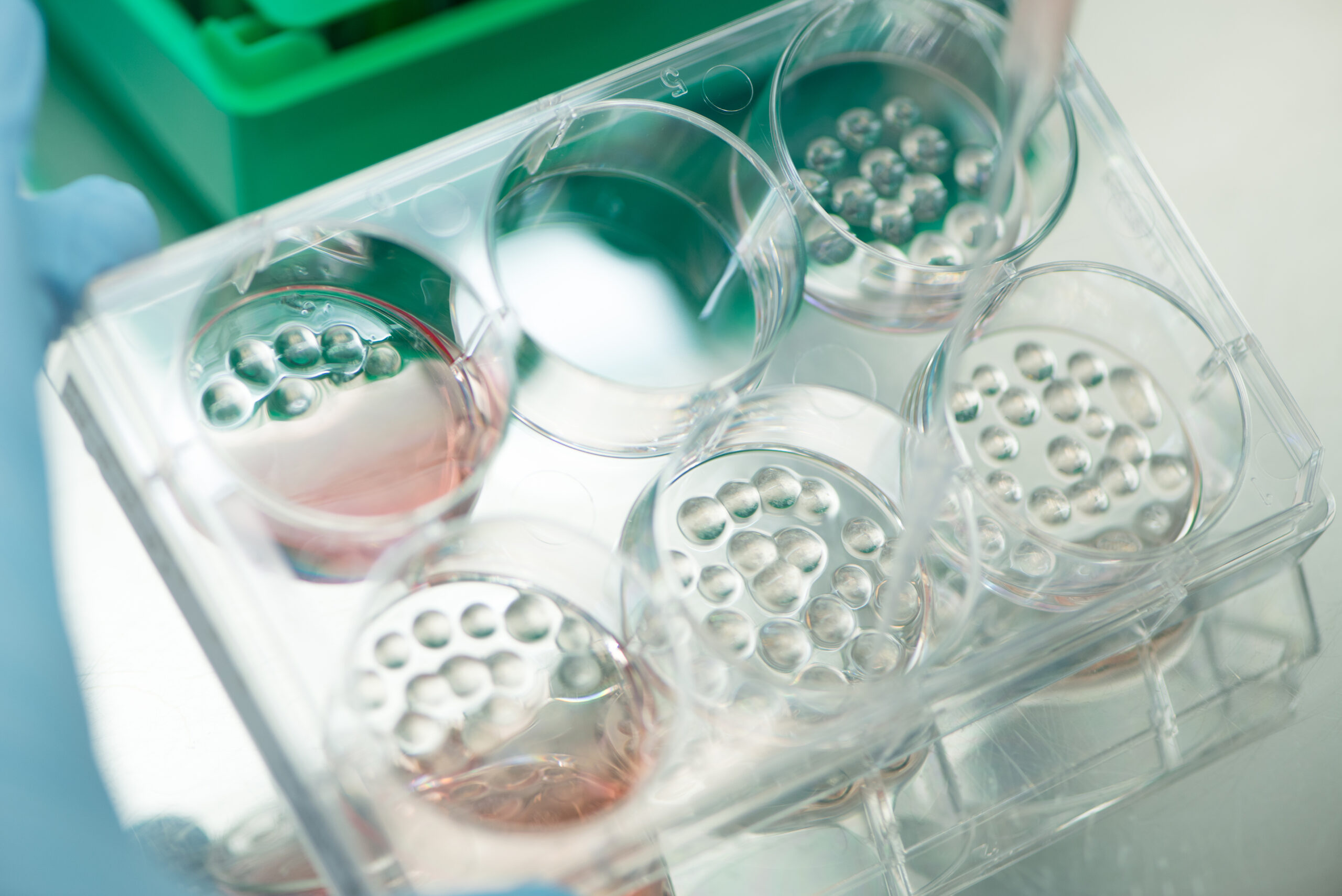In short:
Researchers at Radboud University, led by Dr Paul Kouwer, and Professor Hans Clevers’ laboratory have demonstrated that organoids (miniature organs grown in the laboratory) can grow just as well, and sometimes even better, in an animal-free gel (PIC gel) as in the conventional animal-based variant (Matrigel). The discovery has been published in the renowned scientific journal PNAS.
What exactly are organoids?
Organoids are mini-organs that researchers grow in the laboratory from human stem cells. They mimic the structure and function of real organs and are used to study diseases or test medicines without the need for humans or animals.
Until now, this has usually only been possible in Matrigel, a gel made from mouse tumours. That doesn’t sound very good, and it isn’t: it is animal material, it causes a lot of animal suffering and, scientifically speaking, it is not ideal. The composition of Matrigel varies from batch to batch, which means that results are not always reproducible. And why would you want to mimic human tissue in an animal environment?
What is PIC gel and why is it better?
PIC gel is a fully synthetic and animal-free alternative. This gel was developed at Radboud University by Dr Paul Kouwer’s team. It mimics the natural environment of cells, but without animal ingredients. Until now, PIC gel was mainly suitable for growing simple cell systems. More complex structures, such as organoids, proved more difficult – until now.
This new research has shown that different types of organoids grow just as well or even better in PIC gel than in Matrigel. This is the first time that an animal-free material has been proven to enable this level of cell growth.
Why this is so important
Animal materials such as Matrigel or Fetal Calf Serum (FCS) (a substance extracted from calf blood) are still used in much research. Hundreds of thousands of animals suffer every year for the sake of these two materials.
The PIC gel shows that this is no longer necessary. It offers researchers a reliable, reproducible and animal-free alternative that actually advances science.
A logical step towards animal-free science
We see this breakthrough as an important milestone on the road to truly animal-free biomedical science. Because as long as researchers continue to use animal material, animal suffering will continue, even if no animal testing is carried out. That is why we are tightening our own funding conditions:
From 2026 onwards, Proefdiervrij will no longer fund projects that use Fetal Calf Serum (FCS).
In this way, we are encouraging researchers to work with completely animal-free materials and accelerating the transition to research that no longer requires the use of animals.
Together, we are accelerating the transition
Would you like to conduct animal-free research as a researcher or apply for funding? Check out our collaboration opportunities here (and download the application form).

